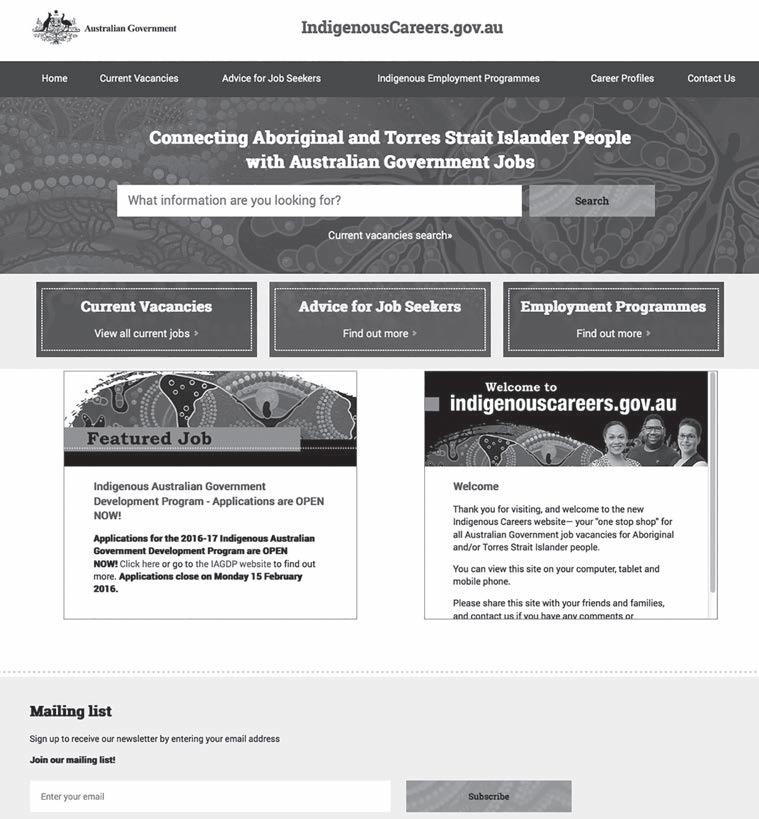
7 minute read
Stolen Generations to receive compensation
The State Government has announced the delivery of a Stolen Generations reparations fund to make payments to Aboriginal community members who were removed from their families.
Historically, a proposal for such a fund has been stalled by the State Government and complicated by a lack of records.
Advertisement
An introduction of a Bill to adequately compensate members of Stolen Generations from South Australia was first introduced into Parliament in 2010 by Greens Aboriginal Affairs spokesperson Tammy Franks MLC. It was followed by a referral to the Aboriginal Lands Standing Committee for inquiry and growing support across the Parliament. The Liberal Opposition then introduced a Stolen Generations Reparation Bill in 2014 and again in 2015. The Labor Government announced the The Next Steps – Stolen Generations Reparation Scheme in November 2015, establishing an $11 million fund, including up to $6 million for ex gratia payments.
Aboriginal Affairs and Reconciliation Minister Kyam Maher said the reparations scheme is a significant step in South Australia’s reconciliation journey.
“Since our apology, South Australia has developed a range of policies and initiatives with a focus on Reconciliation and the wellbeing of Aboriginal people,” said Minister Maher. The launch of a reparations scheme will enable the government to compensate South Australian members of the Stolen Generations without the need for litigation, and taking into account the loss of documents.
Minister Maher said individual reparations will be recommended by an independent assessor.
“The assessor’s primary role will be to determine whether an applicant is eligible for an ex gratia payment, and if so, assess what level of harm has been caused.
“As part of the process, the assessor will be able to hear the personal stories of applicants, and speak with family members and people connected with the removal.
“Based on the assessor’s recommendations, the Minister will decide the amount of the payment,” said the Minister.
The scheme allows for payments of up to $50,000.
Tammy Franks MLC, welcomed the Government’s announcement of a Stolen Generations reparations scheme.
“It is heartening to see the Weatherill Government finally take the Stolen Generations apology words and put them into action with, at long last, a reparations scheme.
“I commend the leadership of Minister Maher on this issue. Sorry doesn’t just mean never doing it again, it also means truly making amends.
“We’ve got a long way to go until we have reconciliation in this nation, but this is a step in the right direction on that long journey to justice,” Ms Franks said.
Co-Commissioner for Aboriginal Engagement Frank Lampard said the reparation fund is vital for the healing process of those members of the Aboriginal community.
“There are many members of the community who have been waiting a long time for recognition by the government for its actions and the damage and hurt it has caused.
“The compensation is a crucial move towards that healing process, and something that aids in reconciling the past.”
“I praise Minister Maher for his efforts on getting this across the line,” Mr Lampard said.
The Minister said the scheme will also feature a $5 million fund for whole-ofcommunity reparations.
It will be available to those whose usual place of residence was South Australia at the time of the separation.
The reparations scheme will begin on 31 March 2016 and the application process will remain open for 12 months.
More employment in public service for Aboriginal and Torres Strait Islander people
The Federal Government aims to increase the number of Aboriginal and Torres Strait Islander people employed by the Commonwealth Public Service over the next two years.
A Commonwealth Aboriginal and Torres Strait Islander Employment Strategy was recently launched by Senator Michaelia Cash, and the Minister for Indigenous Affairs, Senator Nigel Scullion, outlining an increase in employment. The strategy is part of the Government’s response to Mr Andrew Forrest’s Review of Indigenous Training and Employment Programmes report, The Forrest Review: Creating Parity. The Forrest Report found that the employment rate for working-age first Australians is significantly less than other Australians, with remote living being a key factor in limited employment opportunities. The goal of the strategy is to increase the number of Aboriginal and Torres Strait Islander employees across the Commonwealth public sector to three per cent by 2018. Progress towards the targets will be reported annually by agency from next year on the Department of the Prime Minister and Cabinet’s website: www dpmc.gov.au

New DVDs to minimise Elder abuse
The Aged Rights Advocacy Service (ARAS) in Adelaide has launched two DVDs which outline positive steps that older people can take to safeguard their interests and maintain control over their own lives.
The aim of the DVDs is to minimise the risk of abuse of older people in our community. ARAS produced the DVDs with support from Office for the Ageing, SA Health, to encourage older people to engage with their communities, promoting strong community connections. The DVDs have evolved into a valuable resource and an important instrument in raising awareness about preventative strategies to reduce the risk of being abused. Research indicates that one in twenty people 65 years and older experience some form of abuse, that is, physical, financial, psychological, social, sexual and neglect, often by someone the older person trusts, such as a son or a daughter. The DVDs have the potential to be used as an educational tool by those working with older people in the community. Furthermore, they will enable older people to engage and create conversations about the scenarios and how they can apply those ideas and take positive steps to safeguard their rights. Marilyn Crabtree, CEO of ARAS, said the promotion of the DVDs will build awareness raising and confidence amongst older people. “Elder abuse has no boundaries and happens in all communities and cultures. The DVDs will provide organisations, service providers and community groups, with a series of key messages that can assist older people to stay connected, stay active, stay healthy and stay in control within their community.” For more Information contact Ms Marilyn Crabtree 16 Hutt Street Adelaide SA 5000 Tel (08) 8232 5377 Country Free Call 1800¬ 700 600 Fax (08) 8232 1794 Email aras@agedrights.asn.au www.sa.agedrights.asn.au
Cabinet to meet on the APY Lands
Four regional areas will host South Australian Government Country Cabinet meetings in 2016 including the first Cabinet meeting in the APY Lands in more than 20 years.
The first three meetings to be held in 2016 will be at: • Leigh Creek, Flinders Ranges and Port
Augusta (28 February – 1 March) • The APY Lands (1 May – 4 May) • Tatiara, Southern Mallee and Karoonda (11 September – 13 September) Details of a fourth Country Cabinet meeting will be announced later in the year. South Australian Premier Jay Weatherill said “the Regional South Australia contributes about $25 billion to the State’s economy, and these Country Cabinet meetings help give regional areas a stronger voice,” Regional Development Minister Geoff Brock said the face-to-face meetings with locals during Country Cabinet provided valuable feedback about the range of issues facing their communities. “Country Cabinet offers the chance for people to ask questions directly of Cabinet Ministers and senior executives.
Find out more about Country Cabinet at yoursay.sa.gov.au/initiatives/ country-cabinet
The Alinytjara Wilurara Natural Resources Management Board celebrated a milestone with its 50th meeting, held in Adelaide, in late 2015.
Translated to “North-West” in Pitjantjatjara, the Board is the only all-Aboriginal NRM Board in Australia, supporting natural resources management across the far north-west of the State, including APY, Maralinga Tjarutja, Yalata and the Far West Coast.
Parry Agius, presiding Board Member, said a strength of the Board was its partnership approach and strong governance.
“The Board is playing a critical role in supporting communities to set long-term visions for the region’s people, country and water,” he said.
“It is important that we have long-term thinking, a strong partnership approach and that we show leadership back in our communities.”
Board Member Maureen “Mima” Smart from Yalata said it is Board policy that work is delivered by the community. “We also have big visions about supporting natural and cultural-based tourism in our region, which will create more jobs for our young people and provide an economically sustainable base for remote communities,” she said. Sustainability, Environment and Conservation Minister Ian Hunter said since its establishment in 2004, the Board has achieved some very significant outcomes for the region. “Using its Regional NRM Plan, the Board has developed an innovative and community-driven approach to ensure sustainable use of precious water resources in the region, while at the same time protecting country and culture.
“Water management in particular will become more important given the projected impacts of climate change in the region with temperatures forecast by the Goyder Institute to rise by 1.5 degrees and rainfall to decrease by 12.1 per cent by 2050,” he said.


